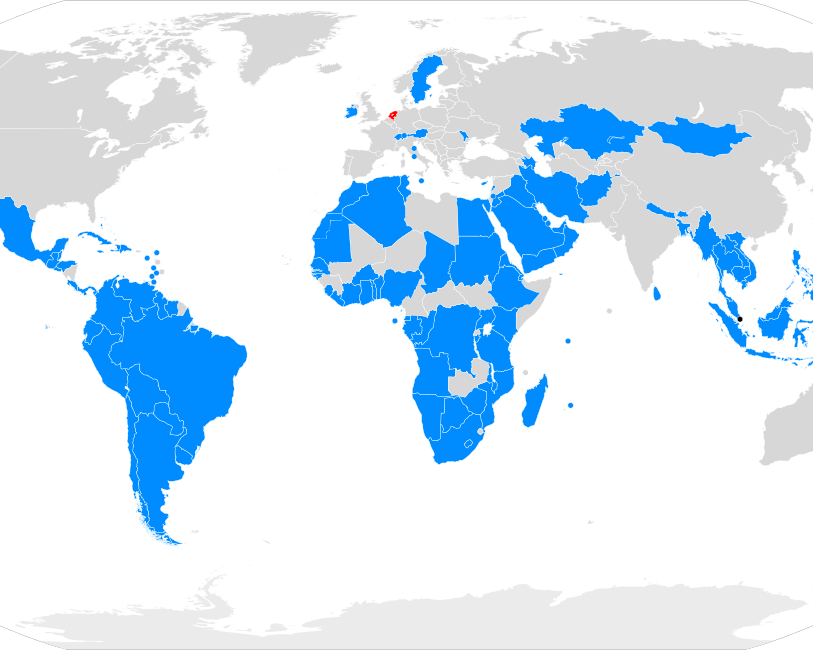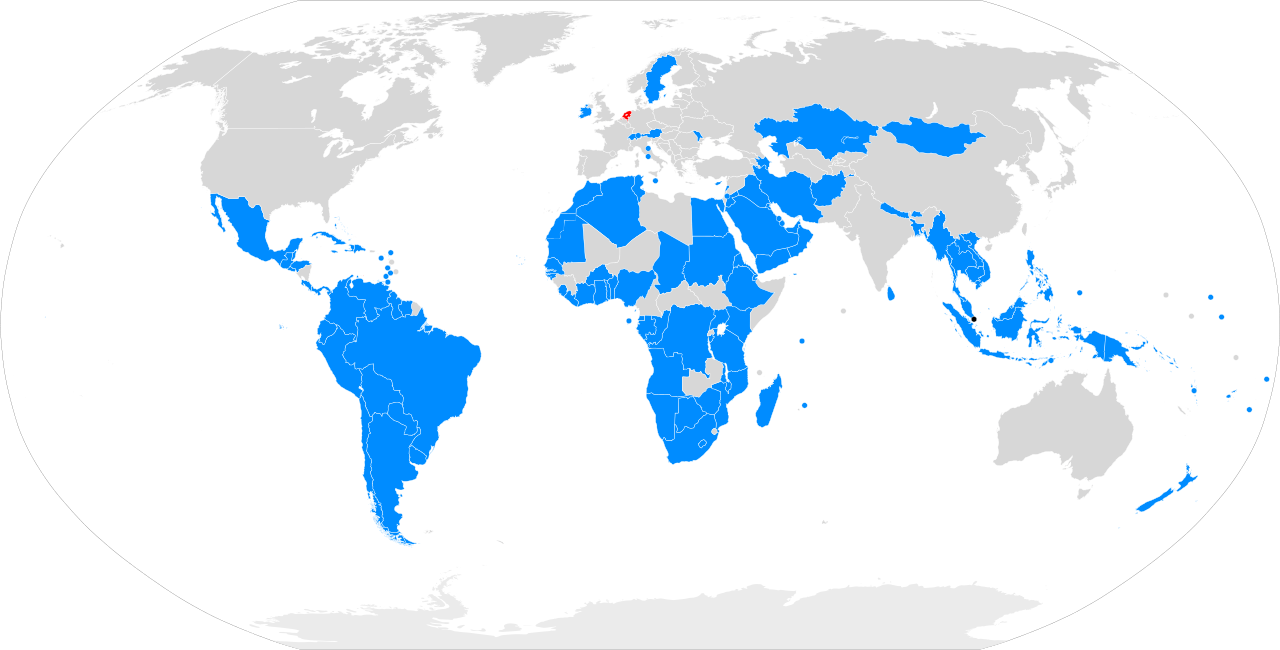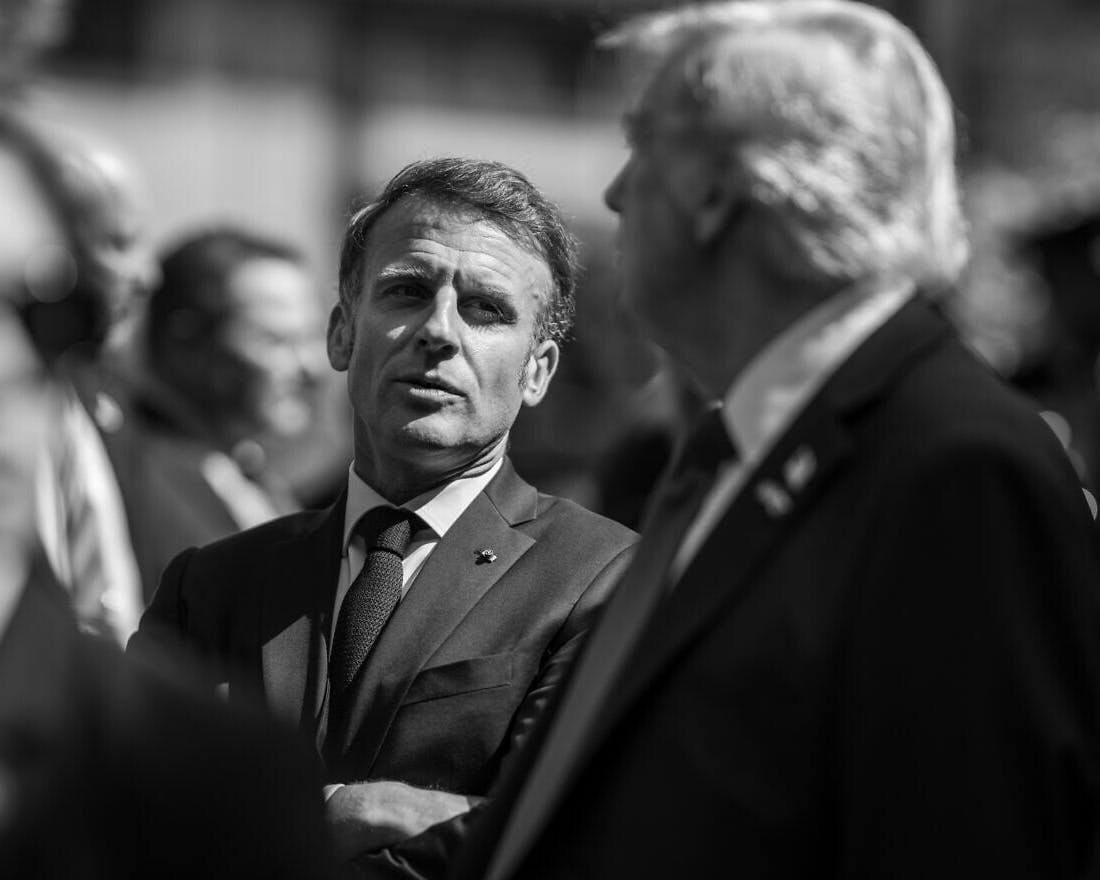Iran Signals Potential Exit from Nuclear Non-Proliferation Treaty

Wednesday, 18 June 2025 | Tehran, Iran – Iran’s foreign ministry announced that its parliament is drafting a bill that could lead to the country’s withdrawal from the Treaty on the Non-Proliferation of Nuclear Weapons (NPT), a landmark international agreement aimed at preventing the spread of nuclear weapons. The move comes amid recent hostilities with Israel, following a series of Israeli airstrikes on Iranian nuclear and military facilities, which Israel deemed necessary to prevent Iran from developing a nuclear bomb. Iran reiterated its stance against pursuing nuclear weapons, even in the midst of mounting evidence that the regime was actively pursuing a clandestine nuclear arms program. The proposed legislation appears to signal a policy shift at the public level.
The NPT, ratified by Iran in 1970, commits signatories to forgo nuclear weapons in exchange for the right to develop civilian nuclear energy under the oversight of the International Atomic Energy Agency (IAEA). The treaty also promotes global nuclear disarmament. Iran’s foreign ministry spokesperson, Esmaeil Baghaei, stated during a press conference that the bill is in the early stages of preparation and that the government would coordinate with parliament as it progresses. “In light of recent developments, we will take an appropriate decision,” Baghaei said, pointing to Israel’s recent attacks and a critical IAEA resolution as key factors influencing Iran’s strategic calculations.

The IAEA, the UN’s nuclear watchdog, passed a resolution on June 12, 2025, declaring Iran in breach of its NPT obligations for the first time in nearly two decades. The resolution, supported by 19 of the IAEA’s 35-member Board of Governors, cited Iran’s failure to cooperate fully with inspections and provide credible reasons for traces of uranium found at undeclared sites. Iran condemned the resolution as politically motivated, with Baghaei arguing that it “prepared the ground” for Israel’s subsequent military strikes, which began on June 13 under Israel’s “Operation Rising Lion.”
Israel, which is not a signatory to the NPT and is widely believed to possess nuclear weapons, launched its offensive citing credible intelligence that Iran was nearing the capability to build a nuclear bomb. The attacks targeted nuclear facilities, air defenses, and military command centers, killing several Iranian nuclear scientists and military commanders. Iran retaliated with missile and drone strikes on Israel, escalating the conflict.
Iran’s President Masoud Pezeshkian stated that Tehran’s nuclear program is only for peaceful purposes and that it aligns with a religious edict by Supreme Leader Ayatollah Ali Khamenei that prohibits weapons of mass destruction. However, Iran’s mission to the UN in Vienna argued that expecting Iran to uphold its NPT commitments is “unjustified” when its civilian nuclear facilities are attacked by a non-NPT member like Israel. Iran claims the proposed bill reflects growing domestic pressure to reconsider Iran’s participation in the treaty, particularly after the IAEA resolution and Israel’s strikes. In reality, the proposed parliamentary bill formalizes what Iran has been covertly pursuing for years: the development of a nuclear weapon.
Analysts warn that Iran’s withdrawal from the NPT could have far-reaching consequences. Kelsey Davenport of the Arms Control Association said that such a move would signal Iran’s serious consideration of nuclear weapons development as a deterrent against future attacks. The NPT allows a state to withdraw with three months’ notice if “extraordinary events” jeopardize its supreme interests, a clause Iran could invoke. However, no final decision has been made, and the bill remains in the initial stages of the legislative process, according to Iranian state media.
The international community has responded with alarm. European foreign ministers urged Iran to return to diplomacy, while the US has bolstered its military presence in the region. President Donald Trump, who has vowed to prevent Iran from acquiring nuclear weapons, warned Tehran to seek a diplomatic resolution, stating, “Iran is not winning this war.” Reports suggest that President Trump is contemplating US involvement in the conflict alongside Israel, with the specific aim of completely destroying Iran’s nuclear enrichment facilities.
Iran’s potential exit from the NPT would indicate a significant gloves-off level of escalation in its nuclear standoff with the West and Israel. Since the US withdrew from the 2015 nuclear deal in 2018, Iran has ramped up uranium enrichment, with the IAEA noting that Tehran possesses enough enriched uranium to potentially produce several nuclear bombs. Although Iran denies pursuing nuclear weapons, it has not explained its enrichment of uranium to near weapons-grade thresholds. The IAEA’s findings have heightened concern among Western nations, prompting calls for increased scrutiny of Tehran’s nuclear activities.
Baghaei also criticized Israel’s nuclear ambiguity, calling it “the only possessor of weapons of mass destruction in the region.” This sentiment reflects Iran’s broader narrative that the NPT unfairly targets it while Israel faces no similar constraints. Conversely, Israel has never issued genocidal threats against any of the Middle Eastern nations or peoples, maintaining a defensive nuclear ambiguity. In contrast, Iran’s leadership, including Supreme Leader Ayatollah Ali Khamenei, has repeatedly called for Israel’s complete destruction, with state media in 2024 and 2025 endorsing the elimination of the “Zionist regime.”
For now, Iran’s parliament has yet to finalize the bill, and its passage is not guaranteed. However, the mere consideration of withdrawing from the NPT underscores the deepening rift between Iran and the international community. Such a bill, if it passes, will only serve to increase Iran’s isolation. As Israeli airstrikes continue unabated, with Israel’s declared objective to completely dismantle Iran’s nuclear capabilities, the proposed Iranian legislative bill, regardless of its passage, may prove to be a futile and inconsequential exercise.
(Bridges for Peace, June 18, 2025)
License: Wikipedia
Related Resources

Discover Your Purpose and God’s Heart For You
In today's divided, turbulent world, it's essential for the Church to rediscover God's heart. Our free e-book, authored by a seasoned expert with three decades of experience in Israel, delves deep into the teachings of Jesus (Yeshua) to reveal God’s principles of love and purpose. Learn how embracing these truths can bring significance and impact to your life, even amidst chaos. Subscribe now to receive your free copy and embark on a journey of transformation.




